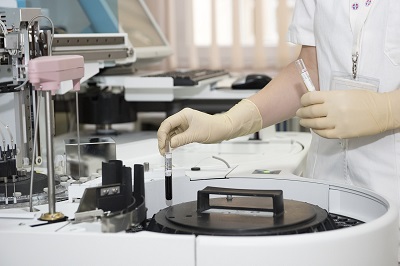To register a Class 3 medical device with the Ministry of Health (MOH) of Indonesia, you must follow a systematic process through the Badan Pengawas Obat dan Makanan (BPOM), which is Indonesia's Food and Drug Authority. Class 3 medical devices are considered high-risk and require thorough evaluation to ensure their safety, quality, and efficacy.
1. Appoint an Authorized Representative (for Foreign Manufacturers)
- If you're a foreign manufacturer, you must appoint a local authorized representative in Indonesia. This representative will handle all communication and submissions to BPOM.
- Local manufacturers can apply directly to BPOM.
2. Ensure Compliance with Regulatory Requirements
- Your device must comply with Indonesian regulations, which are generally in line with international standards such as:
- ISO 13485: Quality Management System (QMS) certification.
- ISO 14971: Risk management for medical devices.
- IEC 60601-1: Standards for medical electrical equipment (if applicable).
3. Prepare the Required Documentation for Registration
- For Class 3 devices, BPOM requires a comprehensive registration dossier that includes:
Technical Dossier
- Device Description: A clear and detailed description of the device, including its components, intended use, and mechanism of action.
- Design and Manufacturing Information: Manufacturing process, facilities, and quality control procedures.
- Clinical Data: Clinical trial reports, scientific studies, or evidence supporting the safety and effectiveness of the device. Clinical data is crucial for Class 3 devices due to their high-risk nature.
- Risk Management Documentation: A risk analysis report based on ISO 14971 that addresses potential hazards, risks, and the steps taken to mitigate them.
- Labeling and Instructions for Use: These should be in Bahasa Indonesia and comply with BPOM’s requirements for clarity, safety warnings, and regulatory information.
- Product Testing Reports: If applicable, including electrical safety testing for medical electrical equipment (e.g., IEC 60601 compliance).
- Certificates of Conformity: Include Certificate of Free Sale (CFS), which shows the device is legally marketed in the country of origin, and ISO 13485 certificate if applicable.
Additional Documentation
- Declaration of Conformity: A statement from the manufacturer indicating the device complies with all relevant regulations and standards.
- Manufacturing Site Inspection Report: BPOM may require evidence that the manufacturing facilities meet Good Manufacturing Practice (GMP) standards.
4. Submit the Application to BPOM
- The completed registration dossier should be submitted to BPOM, which is responsible for evaluating the safety and performance of medical devices.
- BPOM may have an online submission system (e-registry) or accept submissions through traditional channels.
- If you are using a local authorized representative, they will manage this process on your behalf.
5. Evaluation by BPOM
- BPOM will thoroughly assess the submitted documentation, including reviewing:
- The clinical data, risk management report, and the device’s overall safety profile.
- Compliance with international standards (ISO, IEC, etc.) and local regulatory requirements.
- The device’s effectiveness, labeling, and instructions for use.
- BPOM may request further information or clarification during the review process.
- For Class 3 devices, BPOM may require additional clinical trial data or performance testing depending on the complexity of the device.
- On-site inspections may be conducted at the manufacturing facility to verify compliance with GMP and quality standards.
6. Approval and Issuance of Registration Certificate
- After a successful evaluation, BPOM will issue a registration certificate for the device. This certificate authorizes the device to be marketed and distributed in Indonesia.
- The registration certificate is usually valid for 5 years.
7. Post-Market Surveillance and Compliance
- After the device is registered, the manufacturer must comply with Indonesia’s post-market surveillance requirements, which include:
- Adverse Event Reporting: Manufacturers must report any adverse events related to the device to BPOM.
- Product Recalls: If issues are identified post-market, the manufacturer may need to initiate a product recall.
- Periodic Updates: The manufacturer may need to submit regular updates, including new clinical data or changes in manufacturing processes.
- Labeling Updates: If necessary, the device’s labeling or instructions must be updated to reflect new information or regulatory changes.
8. Renewal Process
- After the initial 5-year registration period, manufacturers must apply for renewal before the certificate expires. This process will involve submitting updated documentation to BPOM.
Timeline for Registration
- The entire process typically takes 6 to 12 months or longer, depending on the complexity of the device, completeness of the submission, and BPOM's review process.
- Class 3 devices, being high-risk, require a more thorough evaluation, which may extend the registration timeline.
Costs
- The cost of the registration process will depend on the device's classification and the complexity of the application.
- Costs typically include:
- Application fees for registration.
- Testing and inspection fees (if applicable).
- Authorized representative fees (for foreign manufacturers).
Key Considerations for Class 3 Device Registration:
- Clinical Evidence: Clinical trials or other strong scientific evidence demonstrating safety and efficacy are essential for Class 3 devices.
- Labeling in Bahasa Indonesia: Product labeling and instructions for use must be provided in the official language.
- Post-Market Surveillance: Manufacturers must be prepared to comply with local post-market requirements to ensure ongoing safety and regulatory compliance.
Conclusion:
Registering a Class 3 medical device in Indonesia involves preparing a comprehensive technical dossier, submitting the application to BPOM, undergoing a thorough evaluation process, and complying with post-market requirements. This registration ensures that the device meets Indonesia’s stringent safety and performance standards before being sold in the market.
Let me know if you need additional details or guidance on any specific part of the process!

Contact Us:
Whatsapp or Wechat:+86 15816864648;email address:hito.lin@grzan.cn
.png)
.jpg)
.png)

.png)